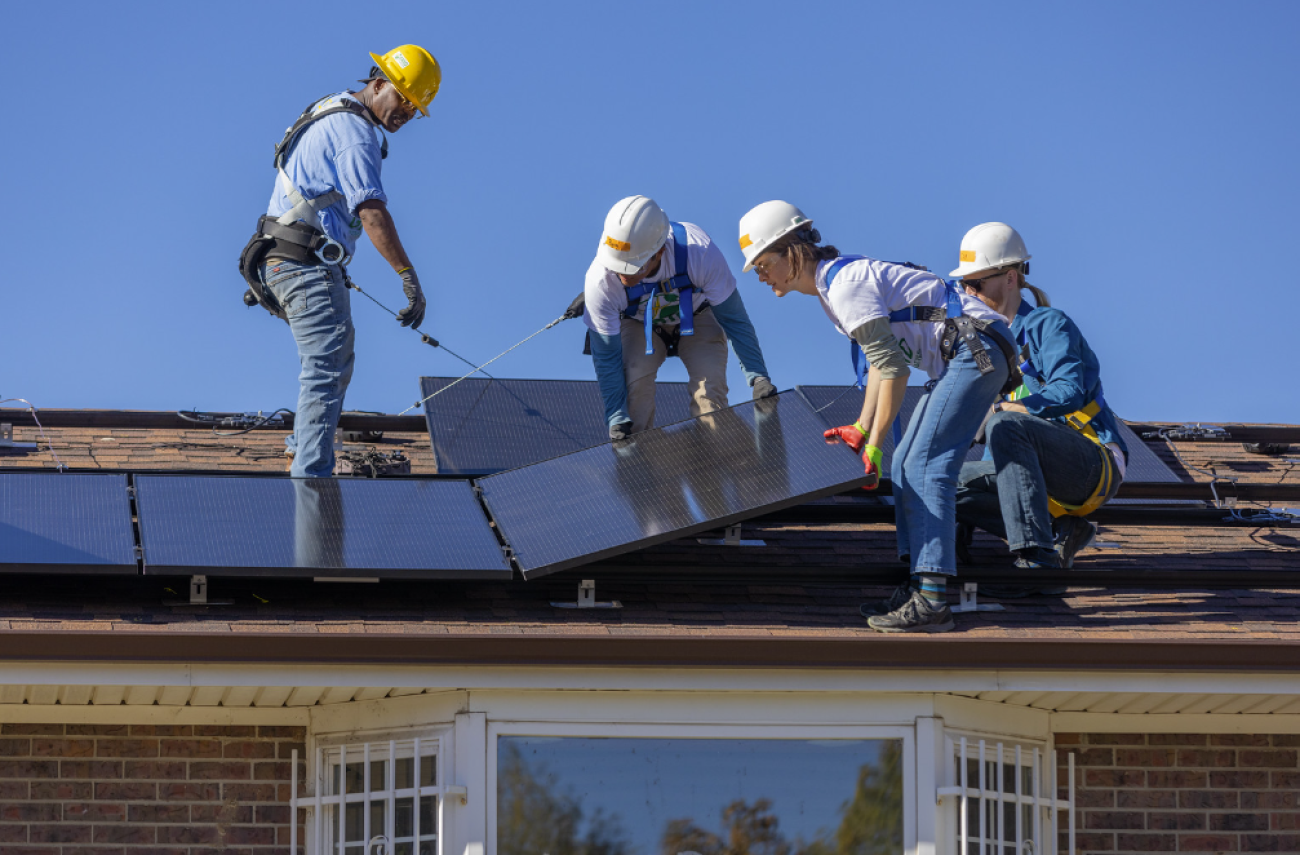
Solar in Dearborn
As energy costs continue to rise, solar panels can be an effective way to decrease your energy bills and carbon emissions. This page is meant to guide home- and business-owners through the process of installing solar panels and remove some of the guesswork from the process. These installations are a large investment–sometimes exceeding tens of thousands of dollars–so it is critical that you make an informed decision.
Learn MoreThe first step to ensuring a successful solar installation is ensuring your property receives enough sunlight. While cloudy weather and tree coverage is a perennial concern in Michigan, we get more sunlight than you think! The following tools can help you estimate your property’s solar potential and total costs.
Navigating the financing, contracting, and permitting requirements for solar panels can be complicated. The following resources are meant to streamline and clarify the process to decrease time required for permitting, re-review fees, and other soft costs.
Finding the right contractor is critical to a successful project; several resources exist to help you make your decision. Make sure to shop around and compare quotes, reviews, and warranties.
Financing and Tax Credits
Given the high upfront cost of solar installations, it is critical to ensure that your investment will save you money in the long term. Several resources exist to improve the return on your investment.
- The federal government offers an income tax credit for 30% of the cost of a solar installation
- Tax-exempt entities like nonprofits, schools, and places of worship are eligible for payments equivalent to the full value of tax credits for clean energy projects through the Inflation Reduction Act.
- Michigan Saves offers financing for energy efficiency improvements, including solar installations.
- PACE provides financing for businesses structured to ensure positive cashflow and eliminate upfront costs.
- While you still pay for energy you import from the grid (i.e., energy requirements beyond what your solar installation produces), you are credited for excess energy you export to the grid.
NOTE: Other energy efficiency investments (weatherization, heat pump installation, etc) may generate larger savings. A level 2 energy efficiency audit can help you understand your options.